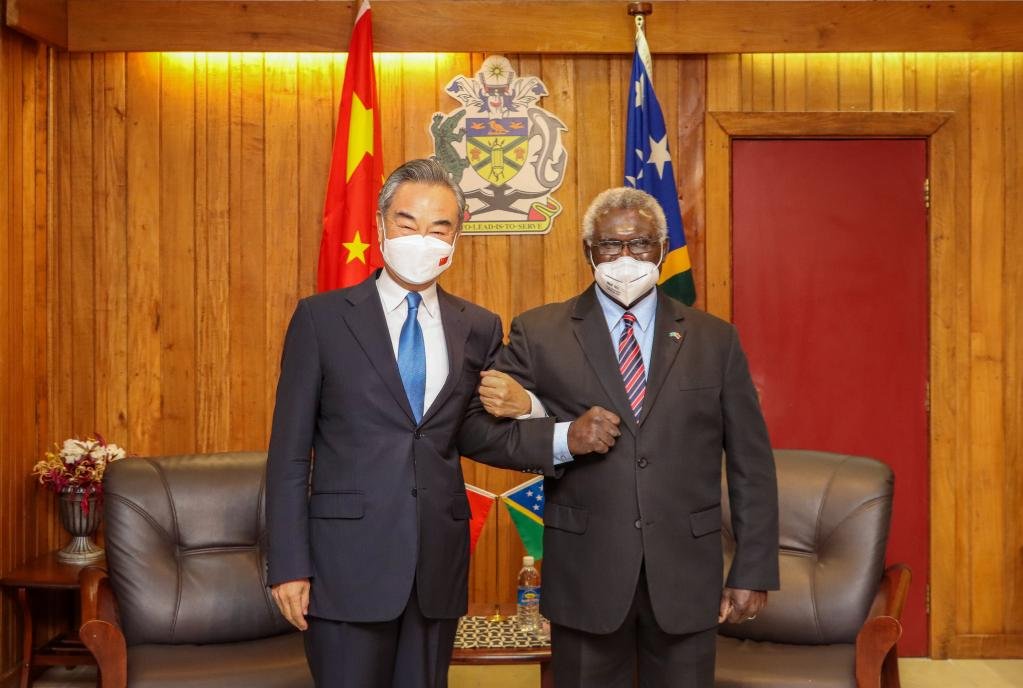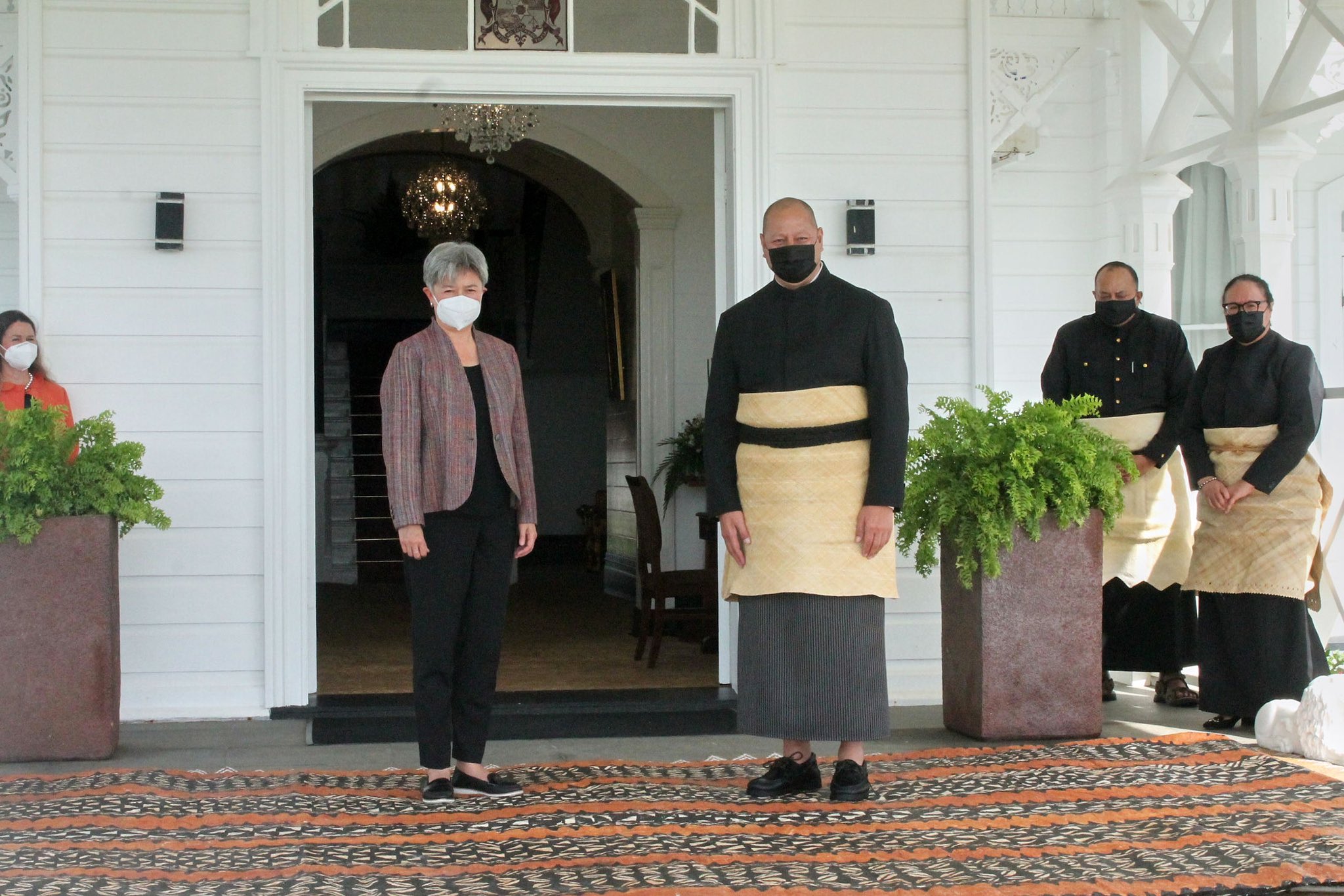The Pacific region has emerged as a new battleground between China and Australia. Even as the Chinese Foreign Minister wrapped up a 10-day Pacific tour, Australia’s newly-appointed Foreign Minister Penny Wong launched a diplomatic counter-offensive, setting the note for a more heated contest in the days to come.
China’s Bullet Train Crashes; Brings Back Memories Of 2011 Accident When Scores Were Killed Due To ‘Design Flaws’
In the course of his 10-day tour, Chinese Foreign Minister Wang Yi visited Samoa, Fiji, Vanuatu, Kiribati, Tonga, Papua New Guinea, and East Timor.
The visit was the most recent in a growing geopolitical contest aimed at courting the Pacific Island nations (PICs) and expanding China’s influence in the region.
The Chinese diplomatic tour came more than a month after signing a security agreement with the Solomon Islands, sparking fears of a Chinese military base just over 2,000 kilometers from Australia.
Further, there was widespread speculation about China negotiating a similar deal with Kiribati Island, which lies close to the US territory of Hawaii, as previously noted by the EurAsian Times.

It has also been reported that China seeks to dislodge the current status quo, allowing Australia to wield the most influence in the region. Given that backdrop, Wong launched a ‘Pacific blitz’ to counter China’s Pacific march.
With a focus on countering China’s growing presence in its traditional sphere of influence, Wong visited three Pacific island nations less than two weeks after entering office.
The #Quad is a key part of Australia’s foreign policy.
Our four countries are committed to strengthening partnerships to respond to the region’s most pressing issues – including accelerating action on climate change, regional security and COVID-19.https://t.co/JLUVt1S9Ms pic.twitter.com/INU9OnxQ1V
— Senator Penny Wong (@SenatorWong) May 24, 2022
While the Labor Party is traditionally known to be warmer with Beijing, the new geopolitical realities indicate that Canberra’s policies will be guided by its security needs and self-preservation. Prime Minister Anthony Albanese and Wong were sworn in shortly after the election to attend the Quad Summit in Japan.
China, Australia Tug of War
On his recent visit to Solomon Island as part of the Pacific tour, Chinese Foreign Minister Wang Yi pledged at a meticulously planned press conference in Honiara. He stated that Beijing had “no intention” of establishing a military base in the Pacific country while reaffirming the iron-clad relationship with the island state.
Despite Wang’s denial of a military base in the Solomon Islands, a veil of secrecy and opacity surrounding specific Chinese plans — exacerbated by limitations on the press reporting his stay in Honiara — has meant that doubts persist about exact plans.
China has been the region’s second-largest lender since 2009, investing a total of $169 million in loans and grants. Unlike the US and Australia, or international institutions such as the World Bank and the Asian Development Bank (ADB), Beijing rarely ties its aid to economic and governance changes.
Furthermore, the loans also provide Beijing with leverage on one of the world’s most contentious issues: the recognition of Taiwan, which has strong diplomatic ties to the region.
According to a Reuters review (2018) of the financial books of 11 South Pacific island governments, China’s lending initiatives have increased from near nil to over $1.3 billion in the last decade.
China’s expansion in the Pacific region, to the detriment of Australia and the US, would thus be riding on the plank of massive capital. China has taken its Belt and Road Initiative (BRI) funding to develop states of the Pacific. However, growing Chinese influence would eventually mean dislodging Canberra from the position of the big brother of the region.
Australian’ diplomatic blitzkrieg’ with Wong covering ground could then be seen in the light of the urgency faced in the region. For example, during the volcano disaster that hit Tonga earlier this year, China and Australia were competing against one another to be the biggest and most reliable providers of relief to the disaster-struck island.

During a joint press conference with Tongan Prime Minister Siaosi Sovaleni in Tonga on Friday, Wong underscored Australia’s plans to interact more with these countries, reported to Nikkei Asia.
“We were elected with a very clear position that we would put in more energy and more resources, bring new energy and more resources to our relationship with the Pacific,” she said.
Wong also spoke about the fight against climate change, which is a major concern for island nations that are at risk of being flooded by rising sea levels.
I appreciated the opportunity to hear about Tonga’s priorities – including recovery from the devastating Hunga Tonga-Hunga Ha’apai eruption and tsunami, climate change, economic development and regional security—and how best we can work together on these challenges. pic.twitter.com/kVeYOKuf9d
— Senator Penny Wong (@SenatorWong) June 3, 2022
Before visiting Tonga, Wong traveled to Fiji directly after attending the Quad summit in Tokyo. Then she visited Samoa, where she met with Prime Minister Fiame Naomi Mata’afa and offered to provide a new patrol boat to the country.
Meanwhile, on his Pacific tour, Chinese Foreign Minister Wang held a virtual meeting with colleagues from ten or so Pacific island states in Fiji earlier this week to discuss a broad regional trade and security agreement. However, no deal was signed owing to objections from at least one country: the Federated States of Micronesia, which relies on the US for its defense.
China’s Foreign Minister leaves the Grand Pacific Hotel in Suva for his first meeting of the day, with Fiji’s President. Big day coming up: Wang Yi will also met Fiji’s PM Frank Bainimarama before holding a virtual meeting with Pacific Foreign Ministers at around 2pm 1/ pic.twitter.com/13bDdmyERU
— Stephen Dziedzic (@stephendziedzic) May 29, 2022
In a rebuttal to China’s plan for economic and security partnership, Wong said in an interview with Australian public broadcaster ABC that Canberra would oppose China’s desire for security cooperation.
“We believe that regional security is the responsibility of the whole Pacific family, of which we are a part, and that’s the approach we’re taking, and that’s the approach that many Pacific island nations are reinforcing in their responses to us,” she said.
On being asked about China’s plans for military expansion in the region, the Foreign Minister said, “Look, China is much more active in this region. We know that China is much more assertive in the world and the broader Indo-Pacific region. We know that. So I think it’s important not to simply focus on what China is doing, but to focus on what we’re doing and on how we work most closely with Pacific Island Nations.”
The message I want to share with our friends in Samoa and Tonga is how deeply the new Australian Government values being part of our Pacific Family.
As I said during my visit to Fiji last week, we will listen and we will work with you to make our Pacific Family even stronger. pic.twitter.com/TefE5bPLGQ— Senator Penny Wong (@SenatorWong) June 1, 2022
In her onward journey, Wong will go to Indonesia with Prime Minister Anthony Albanese on Sunday to meet with President Joko “Jokowi” Widodo.
Indonesia is an important neighbor due to its proximity to Australia and fast-growing economy. Jakarta’s differences with China and its role in the Indo-Pacific policy make it an ideal state for bilateral cooperation.
China’s diplomatic effort, particularly about Pacific security, has alarmed certain island nations as well as Canberra and Washington.
Australia is in the process of building nuclear submarines in cooperation with the US and the UK under the AUKUS pact signed last year. The engagements between the Chinese and Australian military, including the laser firing incident on an Australian reconnaissance plane, have made matters worse.
China’s economic might and huge capital funding have often resulted in massive money flowing into small but strategically located countries. In case of default by these countries, China gets a foothold into the region. It has long been accused of ‘debt traps’ by its critiques, especially seen in Sri Lanka and Pakistan. There are concerns that a similar policy could be used by Beijing in the Pacific, allowing it to make military bases in the region.
With Western military assets dominating the Pacific region and the centrality of the region to Washington and Canberra for their security, it would be imperative for them to retain the region from Chinese influence. The struggle, therefore, has just started.
- Contact the author at sakshi.tiwari9555@gmail.com
- Follow EurAsian Times on Google News




